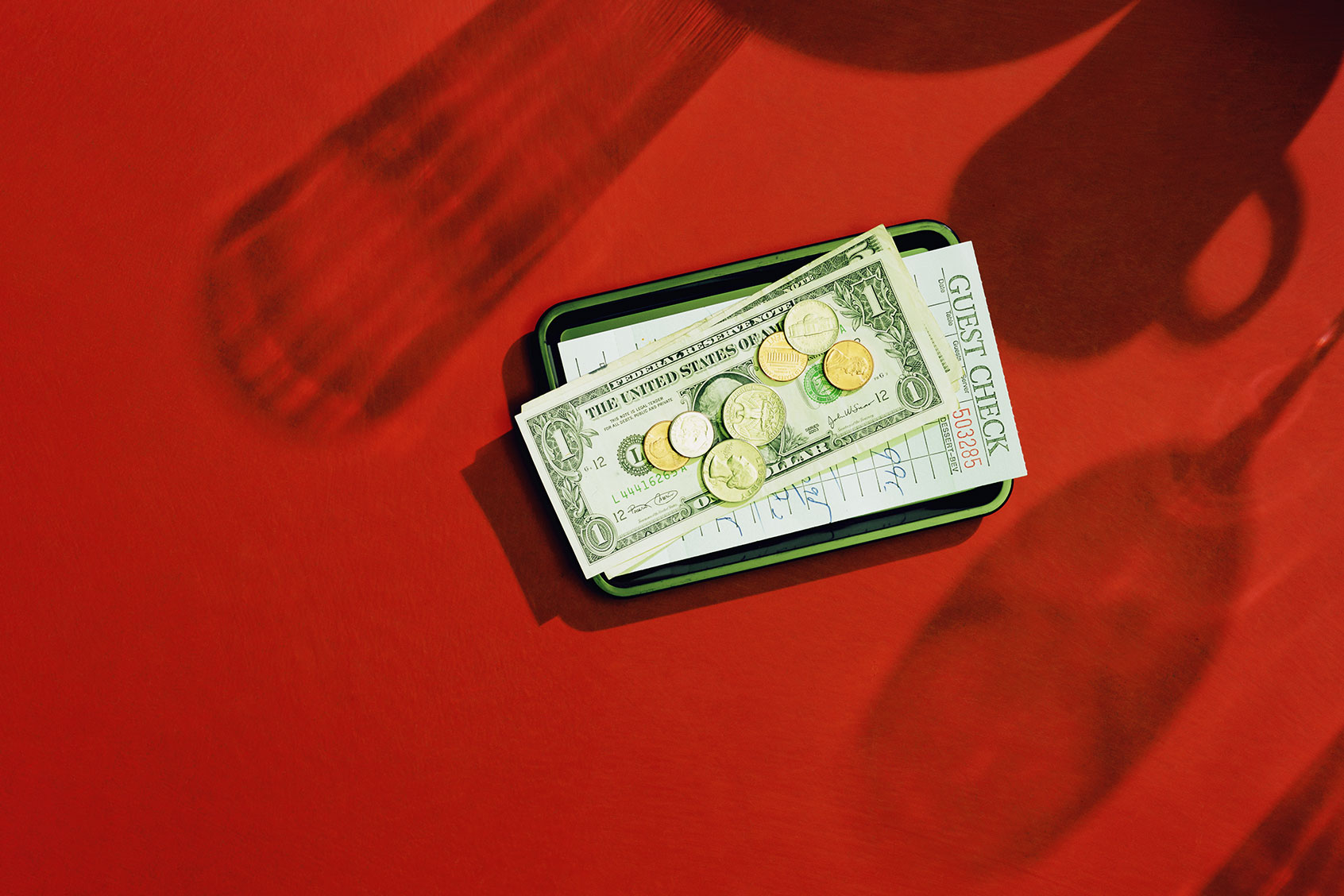Picture this. You’re out to dinner with your six closest friends and after enjoying a delicious meal of Parisian gnocchi, Lamb Merguez, Black Bass and Golden Ossetra Caviar (yes, these are just a few menu offerings at Lutèce), you’re handed the bill. Alongside the standard fees, like taxes and a service surcharge (a.k.a. a “COVID surcharge”), there’s an automatic 18% gratuity on the bill. You may be a bit confused, wondering what in the world that entails. But you dare not pester your server about the validity of the charge and happily hand over your card.
The fee, known as automatic gratuity or forced gratuity, is usually a set percentage of the pre-tax total that goes directly to the servers and other staff who provided service during a meal. Some diners may balk at the idea of having to pay a set gratuity, but the charge is not a tip and instead, a service fee that is treated as a wage for workers. Such gratuities originated in 2012 and were officially enforced in 2014. And, to the dismay of a few stingy restaurant-goers, the charges are 100% legal, per the Internal Revenue Service (IRS).
The IRS explained that in order for a charge to be qualified as a tip, it must be determined by the customer, who decides who receives the tip and how much to pay. A tip must also be made free from compulsion and should not be the subject of negotiations or dictated by employer policy. On the other hand, service charges include automatic gratuity placed on large dining parties, banquet event fees, cruise trip packages, hotel room service charges and bottle service charges.
Most automatic gratuities are placed on dining parties of 6 to 8 or more and range between 15 and 18%. If customers would like to tip their servers the full 20% (or 25%), they can still choose to do so by paying extra in order to satisfy their desired tips value. Of course, the most important thing to remember about automatic gratuities is that they are a necessity for service workers, who have been hit especially hard amid a ruthless pandemic. “In any case, never complain about this fee; a server’s hourly wage is not what sustains them, and gratuity should be a necessity every time you dine out anyway, whether it’s listed right on the bill or not,” wrote Brianna Wellen of The Takeout.
We need your help to stay independent
That being said, automatic gratuity remains a divisive topic, with some asserting that being forced to pay a pre-set service charge, even when the service is mediocre or even abysmal, is unfair. Some believe the charge is a so-called fraud now that fast food businesses are slapping customers with their own mandatory delivery service fees. As G.E. Miller of 20 Something Finance, a personal finance website, said, “A bit of a sham, since according to many food delivery drivers, they sadly never see a penny of the delivery service fee, even after incurring all of the costs associated with food delivery.”
Miller continued, writing, “Suggested tip amounts so that I don’t have to play a guessing game, use my brain for math, or break out a phone calculator? That’s fine and dandy. But the automatic gratuity (an oxymoron) particularly rubbed me and I’m sure many others the wrong way.”
Want more great food writing and recipes? Subscribe to Salon Food’s newsletter, The Bite.
Another opponent of automatic gratuity is the infamous Pastor Alois Bell, who, in 2013, objected to an automatic service charge of 18% when she and nine other diners went out to a St. Louis Applebee’s for a post-service meal. Instead of paying the charge, Bell crossed the tip off of the bill and hand wrote the note: “I give God 10% why do you get 18,” Forbes reported. Bell later said that she’s a pastor and claimed she left cash on the table worth just over 17% of the bill, which seemed unlikely considering her ardent anti-autogratuity stance.
Whether you support the automatic gratuity policy or not, there’s no denying the fact that the charge can legally be enforced by restaurants. So, remember, the next time you’re dining out with company, tip your waiter and pay your autograt please!


